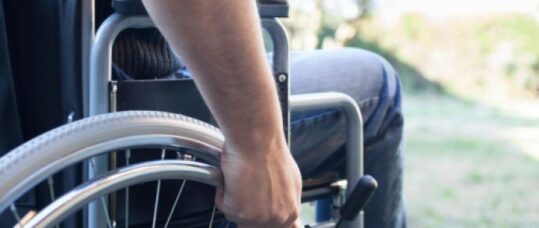RCN releases new guidance for nurses treating motor neurone disease

The Royal College of Nursing (RCN) has launched an online resource to improve knowledge and provide support for nurses treating people with motor neurone disease (MND).
The resource covers both clinical understanding of the disease and best practice in dealing with ethical issues.
Related Article: New preceptorship package for social care nurses
It aims to help nurses have a better understanding of “red flags” for the diagnosis of MND and the necessity of a multidisciplinary approach to treatment.
Amanda Cheesley, RCN professional lead on long term conditions and end of life care, said: “The huge variety of symptoms and rates of progression can be difficult to treat, but we know from the experiences of people living with MND, their families and nurses how great a difference well-informed nursing care can make.
“People with MND and their families can experience great uncertainty and distress, this resource aims to share their experiences and those of the nurses who care for them, so that all patients can experience the best care and support.”
The term Motor Neurone Disease (MND) or Amyotrophic Lateral Sclerosis (ALS) describes a group of related diseases affecting the motor nerves or neurones in the brain and spinal cord.
Related Article: Applications to study nursing in England at ‘new low’
Messages gradually stop reaching the muscles, which leads to weakness and wasting.
MND can affect how a person with the condition walks, talks, eats, drinks and breathes, but not all symptoms necessarily happen to everyone and it is unlikely they will all develop at the same time, or in any specific order.
This resource is designed to help nurses improve their understanding and provide better care for people with this complex and challenging disease.
Related Article: Paul Rees appointed as permanent NMC chief executive and registrar
The RCN partnered with the Motor Neurone Disease Association in drawing up the resource and also involved expert nurses working in the field.
The RCN also highlights that writing a reflective piece on this resource can also contribute to a nurse’s revalidation.

See how our symptom tool can help you make better sense of patient presentations
Click here to search a symptom


The RCN has launched a resource to better nurses’ understanding about treating people with motor neurone disease



